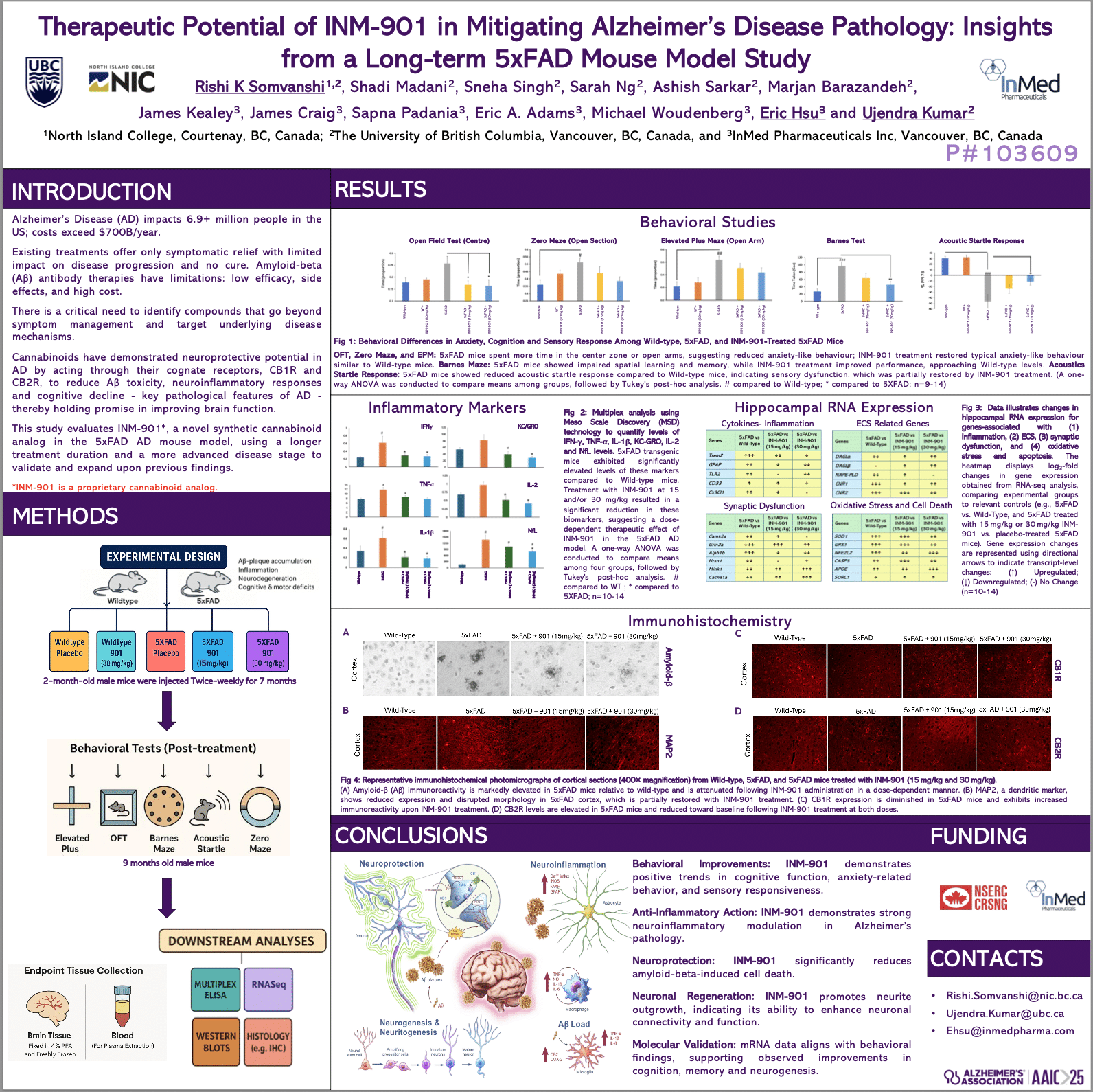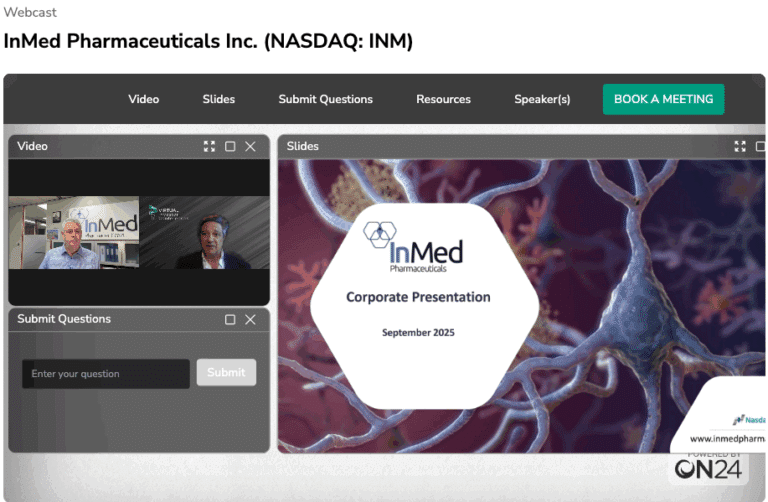InMed presented data from its INM-901 Alzheimer’s disease program at the 2025 Alzheimer’s Association International Conference held in Toronto, Canada.
The latest study presented in a scientific poster entitled, “Therapeutic Potential of INM-901 in Mitigating Alzheimer’s Disease Pathology: Insights from a Long-term 5xFAD Mouse Model Study“, evaluated INM-901 in the well-established 5xFAD AD mouse model, using a longer treatment duration and subjects with more advanced disease to validate and expand upon previous findings, which have demonstrated improvements in cognitive function, anxiety-related behavior, and sensory responsiveness. View the poster here.
Summary of INM-901 Long-term 5xFAD study:
- Hippocampal RNA Expression – Several genes associated with inflammation, the endocannabinoid system, synaptic dysfunction and oxidative stress and apoptosis (cell death) were evaluated following treatment. In some cases, INM-901 demonstrated a dose-dependent trend towards a return to non-diseased baseline following treatment.
- Inflammation – Treatment with INM-901 resulted in a significant reduction in the inflammatory biomarkers IFN-γ, TNF-α, IL-1β, KC-GRO, IL-2 and NfL, suggesting a dose-dependent therapeutic effect in neuroinflammation.
- Immunohistochemistry – Amyloid-beta (Aβ) immunoreactivity is reduced following INM-901 treatment in a dose-dependent manner. MAP2, the microtubule-associated protein 2 is a protein found in the neurons, especially in the dendrites and is involved in neurite outgrowth and signal transduction of the neurons, is partially restored with INM-901 treatment.
- Behavioral – Cognitive function, anxiety-related behavior, and sensory responsiveness were restored or approaching normal following INM-901 treatment.







